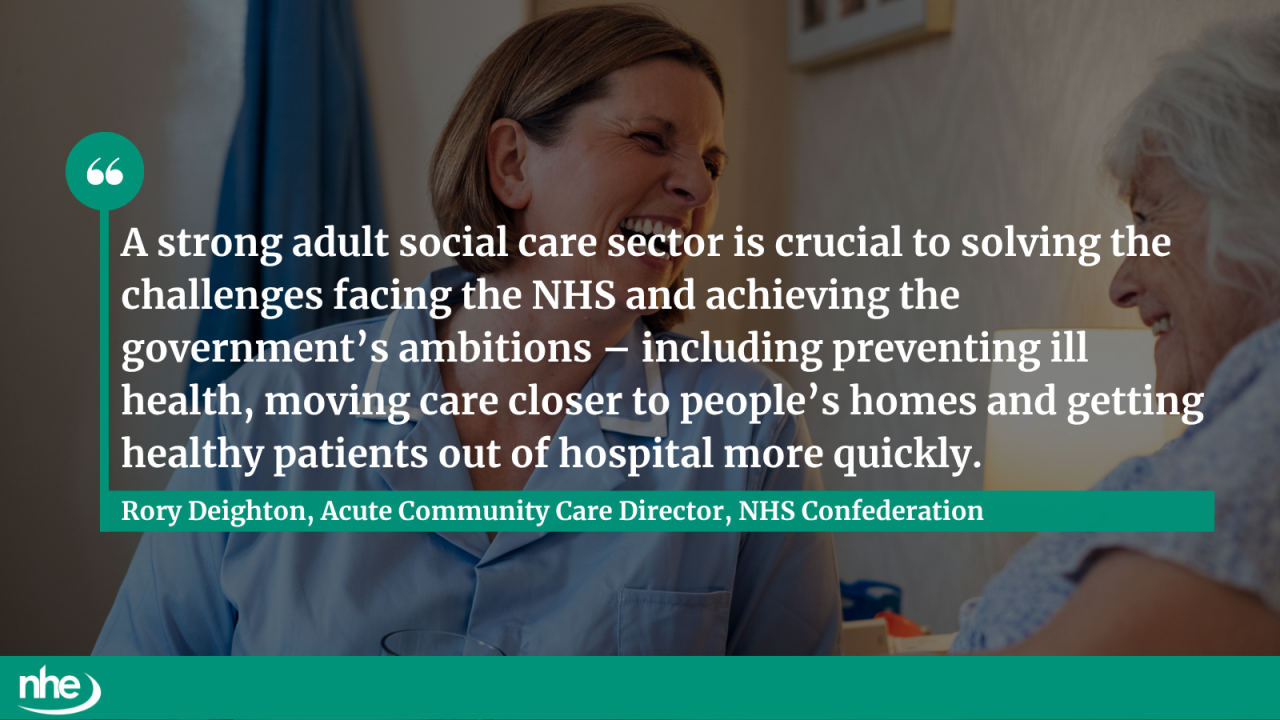England’s adult social care sector contributed a record £77.8 billion to the economy in 2024/25, according to the latest State of the Adult Social Care Sector and Workforce in England report from Skills for Care.
The sector saw a 2.2% increase in total posts, with filled roles rising by 3.4% to 1.6 million, reflecting its growing importance as both a public service and economic driver.
The rise in economic contribution is attributed to higher workforce capacity and an increase in the National Living Wage, which has boosted average pay across the sector.
While vacancy rates have returned to pre-Covid levels at 7%, the sector still faces long-term recruitment and retention challenges. The number of British workers declined by 30,000, while international recruitment fell from 105,000 to 50,000, highlighting the need for a sustainable domestic workforce strategy.
Key findings include:
- 111,000 vacant posts, down 12.4% from last year
- Turnover in the independent sector fell to 24.7%
- Men now make up 22% of the workforce, a record high
- Level 2 qualifications among care workers dropped to 38%
- 62% of employers don’t offer enhanced sick pay; 57% lack enhanced pension contributions
CEO of Skills for Care, Professor Oonagh Smyth, said:
“Our latest report highlights the complex nature of the social care sector today, with encouraging signs of progress for our workforce, alongside challenges that still need to be addressed.
“It’s positive to see our workforce growing, and vacancy and turnover rates continuing to fall. However, much of this improvement is being driven by international recruitment and, as both domestic and international recruitment are slowing, we need to explore new pathways to build sustainable workforce capacity.
“At the same time, falling qualification levels – when care roles are becoming more complex – suggest that capability, as well as capacity, is likely to be a challenge in the future. We have to ensure that people have the skills, values and confidence to do these essential roles in social care.
“To meet growing and changing care needs, we must prioritise domestic recruitment and invest in learning and development for our workforce.
“That’s why initiatives such as the Workforce Strategy that we published last year, and steps towards a Fair Pay Agreement and a National Care Service are so important. They are vital to building a thriving, skilled workforce that plays a central role in neighbourhood health – and ultimately supports people to live a good, independent life in a place they can call home.
“Skills for Care will continue to work with partners across the sector to support workforce development in practice and ensure the insights from this report inform future planning and policy.”
Skills for Care also identified five key factors that reduce turnover:
- Competitive pay
- Stable contracts
- Access to training
- Relevant qualifications
- Full-time employment
Workers with none of these factors are three times more likely to leave their roles (42.2% vs 14.4%).
With the population over 65 projected to grow significantly, the sector will need 470,000 new posts by 2040 – a 27% increase. The report calls for urgent action to improve job quality, training, and career progression to build a resilient workforce.
The data, drawn from over 700,000 staff across 21,000 locations via the Adult Social Care Workforce Data Set, provides a comprehensive view of the sector’s current state and future needs.
The NHS Confederation has responded to the report, with Acute Community Care Director Rory Deighton saying:
“This report shows the scale of improvements that have been made to boost recruitment and retention across the adult social care sector while also highlighting the challenges that remain. The fragility of the social care sector is one of key issues facing the health and wellbeing of our population.
“Low pay and long hours have led to huge gaps in staffing, with more and more social care providers closing, feeding instability into a struggling system.
“A strong adult social care sector is crucial to solving the challenges facing the NHS and achieving the government’s ambitions – including preventing ill health, moving care closer to people’s homes and getting healthy patients out of hospital more quickly.
“We hope that the government’s forthcoming Casey Review of social care will build upon the progress that has already been made to tackle recruitment and retention challenges, including the government’s recent fair pay agreement.”

Image credit: iStock



















